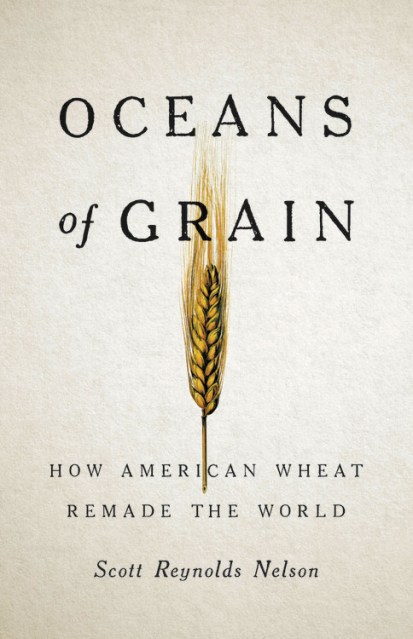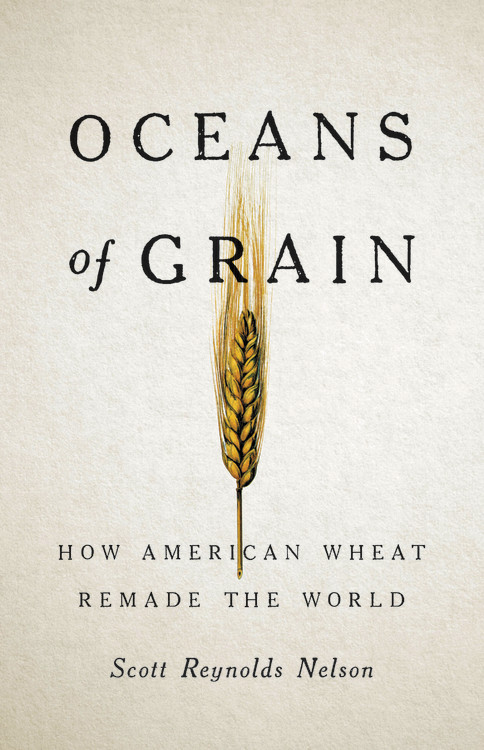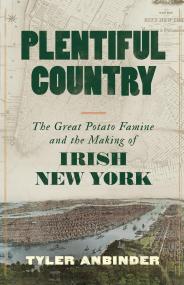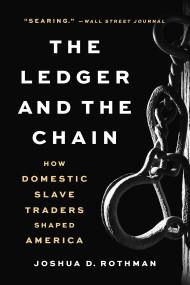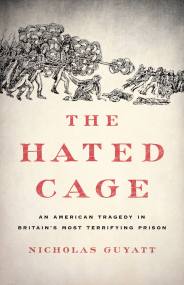Promotion
Use code BESTBOOKS24 for 25% off sitewide + free shipping over $35
By clicking “Accept,” you agree to the use of cookies and similar technologies on your device as set forth in our Cookie Policy and our Privacy Policy. Please note that certain cookies are essential for this website to function properly and do not require user consent to be deployed.
9781541646469
How American Wheat Remade the World
Contributors
Formats and Prices
Price
$32.00Price
$40.00 CADFormat
Format:
- Hardcover $32.00 $40.00 CAD
- ebook $18.99 $24.99 CAD
This item is a preorder. Your payment method will be charged immediately, and the product is expected to ship on or around February 22, 2022. This date is subject to change due to shipping delays beyond our control.
Also available from:
To understand the rise and fall of empires, we must follow the paths traveled by grain—along rivers, between ports, and across seas. In Oceans of Grain, historian Scott Reynolds Nelson reveals how the struggle to dominate these routes transformed the balance of world power.
Early in the nineteenth century, imperial Russia fed much of Europe through the booming port of Odessa, on the Black Sea in Ukraine. But following the US Civil War, tons of American wheat began to flood across the Atlantic, and food prices plummeted. This cheap foreign grain spurred the rise of Germany and Italy, the decline of the Habsburgs and the Ottomans, and the European scramble for empire. It was a crucial factor in the outbreak of the First World War and the Russian Revolution.
A powerful new interpretation, Oceans of Grain shows that amid the great powers’ rivalries, there was no greater power than control of grain.
-
"Original and intriguing…[Nelson] makes a strong case that the wheat trade’s contribution to history has not been given its due.”Wall Street Journal
-
“Scott Reynolds Nelson in his gripping Oceans of Grain: How American Wheat Remade the World…is quite serious about the world-ordering power of wheat. Moreover, his grain obsession is infectious. You begin the book a sober reader, calmly appreciating the complexity of historical causation, and you finish it a raving wheat monomaniac.”Daniel Immerwahr, New York Review of Books
-
“An incredibly timely history… Nelson makes a persuasive case that grain production, storage, transport and trade was the defining factor in the rise and fall of civilisations from Rome to Byzantium to the Ottoman Empire and Imperial Russia…”Financial Times
-
“[A] sweeping and timely new history...vitally provocative.”Irish Times
-
"Readable, original and provocative, this is a book that deserves attention."David Abulafia, The Spectator
-
“Oceans of Grain is provocative. Well researched and readable, Nelson has written a book that will fascinate both professional historians and regular folk."American Essence
-
"Oceans of Grain is an eye opening feat of historical reconsideration.”Smoke Signals
-
"In the vein of other groundbreaking historical revisionist books, Oceans of Grain runs a fine toothed comb through history to tell an unexpected tale of what caused some empires to crumble while others survived and thrived: grain. …much as he does in his previous book, Steel Drivin’ Man, Reynolds Nelson introduces new key actors that shed important light on the story. A quick read despite its length, Oceans of Grain’s reinterpretation of a humble commodity’s history makes a case that wheat has had as much of an impact on our country and our planet as cotton—and that the fight for the power of grain is far from over.”Civil Eats
-
“A sweeping and timely new history...vitally provocative.”Irish Times
-
“American cotton changed the world in the first half of the nineteenth century, American wheat in its second half. Scott Reynolds Nelson’s globe-spanning exploration of the powers of a humble grain to topple empires, enable industrialization, build cities, and redirect trade flows is the kind of commodity history one wishes for: attentive to politics, connected as well as comparative in perspective, and with a knack for telling details. After reading this fast-paced book, the wars, revolutions, and empires of the nineteenth century will never seem the same.”Sven Beckert, author of Empire of Cotton
-
“Nelson’s signature mastery of scale is on full display in Oceans of Grain. Here we watch him play out the revolutionary implications of the American seizure of the international wheat market in the immediate aftermath of the Civil War. This remarkable book rearranges what you think you know about the United States and the world in the late nineteenth and early twentieth century.”Stephanie McCurry, Columbia University
-
“Nelson reveals the deep international career of wheat as a maker and breaker of empires and of people from Roman times until the twentieth century. Oceans of Grain is a book of astounding reach and depth, wholly original, gripping to read, and destined to become an instant classic. Rice and maize should be so lucky.”James C. Scott, author of Against the Grain
-
“Oceans of Grain is the best work of history I have read in a very long time. Witty and wise, it reveals how conspirators and heads of state, workers and entrepreneurs, and philosophers and economists turned the human struggle for daily bread into wars and empires, revolutions and conquests, feasts and famines. It takes readers from the granaries and ancient trade pathways of Europe to the US Civil War and the overthrow of slavery, the founding of empires, the slaughterhouses of the First World War and the Russian Revolution, and, finally, to our contemporary, interconnected, and profoundly unequal world. Along the way, Scott Reynolds Nelson introduces us to the individuals who made and remade this world. Some are welcome new acquaintances and others—like Abraham Lincoln and Vladimir Lenin—are shown in such new light that it feels as if we are meeting them for the first time.”Angela Zimmerman, George Washington University
- On Sale
- Feb 22, 2022
- Page Count
- 368 pages
- Publisher
- Basic Books
- ISBN-13
- 9781541646469
Newsletter Signup
By clicking ‘Sign Up,’ I acknowledge that I have read and agree to Hachette Book Group’s Privacy Policy and Terms of Use
